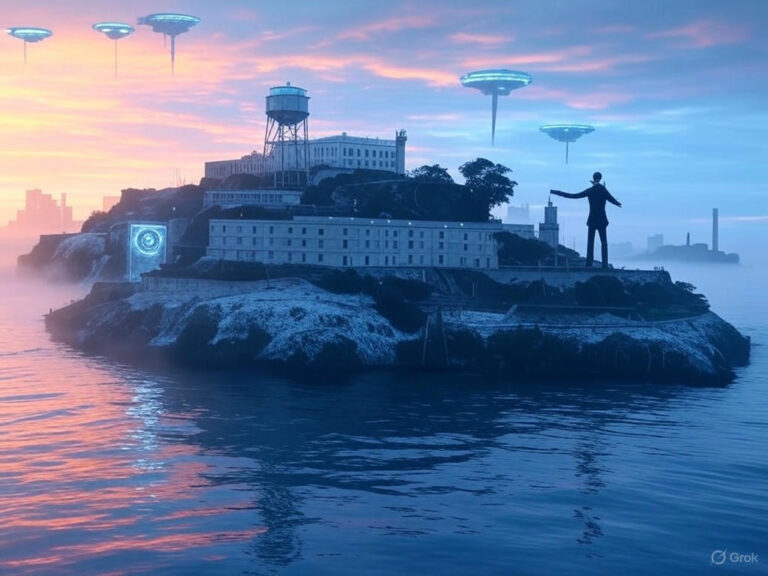
Hamas rejects Gaza talks amid Israel’s offensive expansion
The Escalating Gaza Conflict: Hamas Halts Negotiations
In the midst of the Gaza conflict, a senior Hamas official declared on May 6, 2025, that there’s simply no point in pursuing truce talks with Israel. Bassem Naim shared this stance with the BBC, pointing to Israel’s recent approval of plans to ramp up military operations as the breaking point. This rejection comes as Israel’s actions, described by Naim as a “starvation war,” continue to worsen conditions in the Palestinian territory.
Have you ever wondered how quickly diplomatic efforts can unravel in high-stakes situations? Here, the decision by Israeli Cabinet ministers to expand their offensive signals a major shift, stemming from the Hamas-led attack on southern Israel back in October 2023. It’s a reminder that the Gaza conflict doesn’t just involve battles—it’s deeply intertwined with human lives and global tensions.
Israel’s Bold Plans in the Gaza Conflict
Israeli officials have outlined ambitious strategies for the Gaza conflict, approving a full-scale operation to capture the entire Gaza Strip and maintain control indefinitely. Two sources from The Associated Press revealed this early Monday vote, aligning with calls for tens of thousands of reserve soldiers to join the fight. The goal? To secure hostages and dismantle Hamas once and for all.
This move isn’t just about military might; it’s about reshaping the dynamics of the Gaza conflict. Prime Minister Netanyahu hinted at an “intensive” operation in a social media video, though he stopped short of confirming a total takeover. Imagine the ripple effects: displacing populations, controlling aid, and addressing the UN-reported food shortages after a grueling two-month blockade.
As we delve deeper into the Gaza conflict, it’s clear that preparations are methodical. Officials noted that the offensive won’t start right away, giving way to a diplomatic pause ahead of US President Donald Trump’s visit. That window might offer Hamas a chance to reconsider, but time is ticking.
Timeline and Strategic Build-Up in the Gaza Conflict
Military readiness for the Gaza conflict could take about two weeks, allowing room for last-minute negotiations led by Trump and his envoy. This delay isn’t just logistical—it’s a strategic play to balance force with diplomacy. What if a deal emerges? It could mean hostage releases and a temporary halt, but the underlying issues in the Gaza conflict persist.
For those following the Gaza conflict closely, this phase highlights how timing influences outcomes. Envoys from Qatar and Egypt, along with CIA Director William Burns, have been key players, yet progress remains stalled.
Deepening Humanitarian Crisis Amid the Gaza Conflict
The Gaza conflict has pushed humanitarian conditions to a breaking point, with Israel’s blockade cutting off aid for two months and sparking severe shortages. Stories like that of 12-year-old Rahaf Ayyad paint a heartbreaking picture—once vibrant and playful, she’s now weakened by malnutrition, surviving on little more than bread and rice.
Her mother, Shorouq, captures the despair many families face: “Our children are dying in front of us, and we can’t do anything.” In the Gaza conflict, such personal accounts underscore the urgent need for intervention. If you’re thinking about how to help, organizations like the UN are calling for immediate access to essentials like food and medical supplies.
Displacement and Overcrowding in the Gaza Conflict
An expanded offensive in the Gaza conflict could force hundreds of thousands more into southern areas like Rafah, already overwhelmed with over a million displaced people. Bordering Egypt, this city has become a symbol of refuge turned crisis, with dire lacks in water, food, and shelter. International warnings highlight the risk of massive civilian casualties if operations intensify.
With UN data showing that 85% of Gaza’s 2.3 million residents have already fled their homes, the Gaza conflict raises tough questions. How do we prevent further tragedy? Advocates suggest supporting calls for ceasefires and aid corridors as practical steps forward.
Historical Roots of the Gaza Conflict and Rising Death Toll
The current escalation in the Gaza conflict traces back to the October 7, 2023, attack by Hamas, which killed 1,200 in Israel and led to 251 hostages. Israel’s response has been devastating, with Palestinian health officials reporting over 52,000 deaths since then. This cycle of violence marks the fourth major clash in recent years, following operations like Cast Lead and Protective Edge.
It’s easy to feel overwhelmed by these numbers, but understanding the history helps. Israel occupied Gaza after the 1967 war but withdrew in 2005, only for Hamas to take control in 2007. Now, the prospect of reoccupation in the Gaza conflict could undo years of policy and ignite new debates on governance and peace.
Past Occupations and Their Legacy in the Gaza Conflict
Looking at the Gaza conflict through history, Israel’s 2005 disengagement was meant to foster stability, yet it led to Hamas’s rule and repeated escalations. A potential full reoccupation now? It might complicate paths to Palestinian statehood and regional harmony. Picture the challenges: managing a hostile population while addressing international scrutiny.
Global Reactions to the Gaza Conflict
World leaders are watching the Gaza conflict with growing alarm, as the EU and UN voice fears of more civilian suffering. The UN Secretary-General has specifically warned about the humanitarian fallout from any expanded offensive. These responses highlight how the Gaza conflict extends beyond borders, affecting diplomacy worldwide.
Regional Tensions in the Gaza Conflict
Timing is everything in the Gaza conflict, especially with Trump’s upcoming visit to Arab Gulf nations. Some speculate this announcement bolsters Israel’s stance at the negotiating table. Meanwhile, Egypt firmly opposes any refugee influx into Sinai, viewing it as a breach of humanitarian law that could lead to permanent displacement.
Egyptian Foreign Minister Sameh Shoukry’s stance is clear: such moves are “totally unacceptable.” In the Gaza conflict, these dynamics show how neighboring countries are pulled into the fray, often reluctantly.
Negotiations at a Standstill in the Gaza Conflict
Before Hamas’s outright rejection, talks in Egypt involved mediators from Qatar and the US, aiming for a prisoners-for-hostages swap. Israel is open to deals but won’t stop operations, particularly around Rafah. Hamas, however, insists on a full withdrawal and safe returns for displaced people.
With estimates of up to 24 hostages possibly alive, the human element of the Gaza conflict is undeniable. What can individuals do? Staying informed and supporting neutral advocacy groups might make a difference in pushing for resolutions.
Future Outlook of the Gaza Conflict
The Gaza conflict’s potential for long-term occupation raises profound questions about peace and Palestinian rights. If Israel maintains control, it could stifle hopes for statehood and deepen animosity. Strategies for governing Gaza—perhaps drawing from Trump’s proposals—would need to address these complexities head-on.
As the situation unfolds, consider this: How might global pressure influence outcomes? Engaging with updates and discussions could empower you to contribute to the conversation. After all, awareness is the first step toward change.
We’ve covered the key angles of this evolving story, from humanitarian pleas to diplomatic maneuvers. If you’re passionate about the Gaza conflict, I encourage you to share your thoughts in the comments below or explore more on our site about global conflicts. Let’s keep the dialogue going—what actions do you think could lead to lasting peace?
References
- Article on Israel’s Gaza plans: CBS News
- BBC interview details: YouTube Video
- Analysis of implications: PBS NewsHour
- Historical context study: Swinburne Research Bank
- Additional insights: Inocas (relevant for broader conflict discussions)
- Advocacy perspectives: Up Magazine
- Related transcripts: Rev.com
- Comprehensive articles: Best of AI






